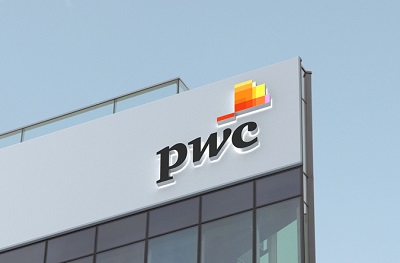Pepsi, IKEA, FedEx and 340 other international companies have secured secret deals from Luxembourg, allowing many of them to slash their global tax bills while maintaining little presence in the tiny European duchy, leaked documents show.
These companies appear to have channeled hundreds of billions of dollars through Luxembourg and saved billions of dollars in taxes, according to a review of nearly 28,000 pages of confidential documents by the International Consortium of Investigative Journalists and a team of more than 80 journalists from 26 countries.
Big companies can book big tax savings by creating complicated accounting and legal structures that move profits to low-tax Luxembourg from higher-tax countries where they’re headquartered or do lots of business. In some instances, the leaked records indicate, companies have enjoyed effective tax rates of less than 1 percent on the profits they’ve shuffled into Luxembourg.
 The leaked documents reviewed by ICIJ journalists include hundreds of private tax rulings – sometimes known as “comfort letters” – that Luxembourg provides to corporations seeking favorable tax treatment from the jurisdiction.
The leaked documents reviewed by ICIJ journalists include hundreds of private tax rulings – sometimes known as “comfort letters” – that Luxembourg provides to corporations seeking favorable tax treatment from the jurisdiction.
The European Union and Luxembourg have been fighting for months over Luxembourg’s reluctance to turn over information about its tax rulings to the EU, which is investigating whether the country’s tax deals with Amazon and Fiat Finance violate European law. Luxembourg officials have supplied some information to the EU but have refused, EU officials claim, to provide a larger set of documents relating to its tax rulings.
The leaked documents reviewed by ICIJ involve deals negotiated by PricewaterhouseCoopers, one of the world’s largest accounting firms, on behalf of hundreds of corporate clients. To qualify the companies for tax relief, the records show, PwC tax advisers helped come up with financial strategies that feature loans among sister companies and other moves designed to shift profits from one part of a corporation to another to reduce or eliminate taxable income.
The records show, for example, that Memphis-based FedEx Corp. set up two Luxembourg affiliates to shuffle earnings from its Mexican, French and Brazilian operations to FedEx affiliates in Hong Kong. Profits moved from Mexico to Luxembourg largely as tax-free dividends. Luxembourg agreed to tax only one quarter of 1 percent of FedEx’s non-dividend income flowing through this arrangement - leaving the remaining 99.75 per cent tax-free.
FedEx declined comment on the specifics of its Luxembourg tax arrangements. Other companies seeking tax deals from Luxembourg come from private equity, real estate, banking, manufacturing, pharmaceuticals and other industries, the leaked files show. They include Accenture, Abbott Laboratories, American International Group (AIG), Amazon, Blackstone, Deutsche Bank, the Coach handbag empire, HJ Heinz, JP Morgan Chase, Burberry, Procter & Gamble, the Carlyle Group and the Abu Dhabi Investment Authority.
For their part, Luxembourg’s officials and defenders say the landlocked nation’s system of private tax agreements is above reproach.
“No way are these sweetheart deals,” Nicolas Mackel, chief executive of Luxembourg for Finance, a quasi-governmental agency, said in an interview with ICIJ.
“The Luxembourg system of taxation is competitive - there is nothing unfair or unethical about it,” Mackel said. “If companies manage to reduce their tax bills to a very low rate, that’s a problem not of one tax system but of the interaction of many tax systems.”
Under Luxembourg’s system, tax advisers from PwC and other firms can present proposals for corporate structures and transactions designed to create tax savings and then get written assurance that their plan will be viewed favorably by the duchy’s ministry of finance.
Luxembourg’s Ministry of Finance said in a statement that “advance tax decisions” are “well established in many EU member states, such as Germany, France, the Netherlands, the UK, and Luxembourg” and that they don’t conflict with European law as long as “all taxpayers in a similar situation are treated equally.”
PwC said ICIJ’s reporting is based on “outdated” and “stolen” information, “the theft of which is in the hands of the relevant authorities.” It said its tax advice and assistance are “given in accordance with applicable local, European and international tax laws and agreements and is guided by a PwC global tax code of conduct.”
(Published by The Irish Times – November 5, 2014)